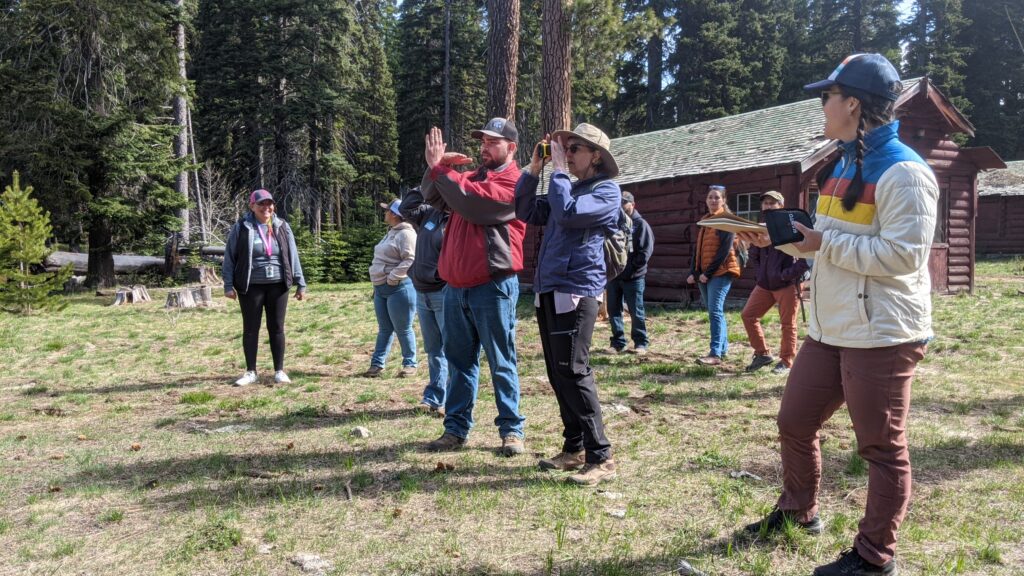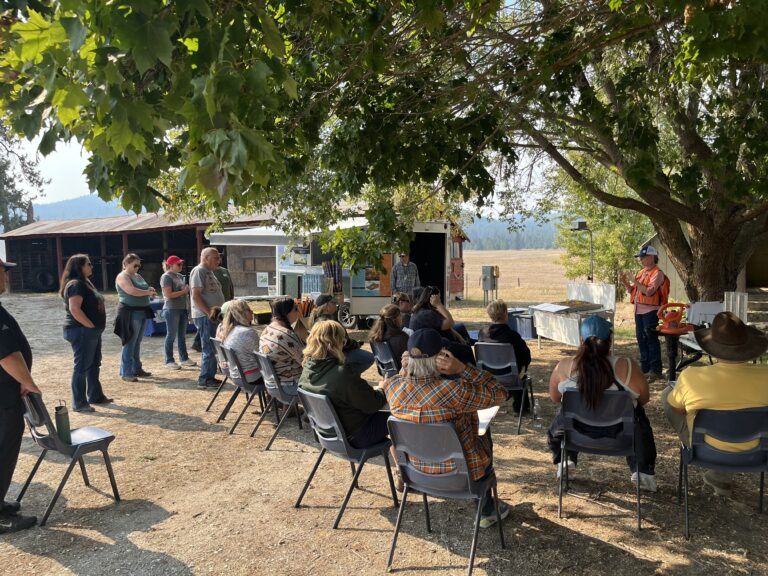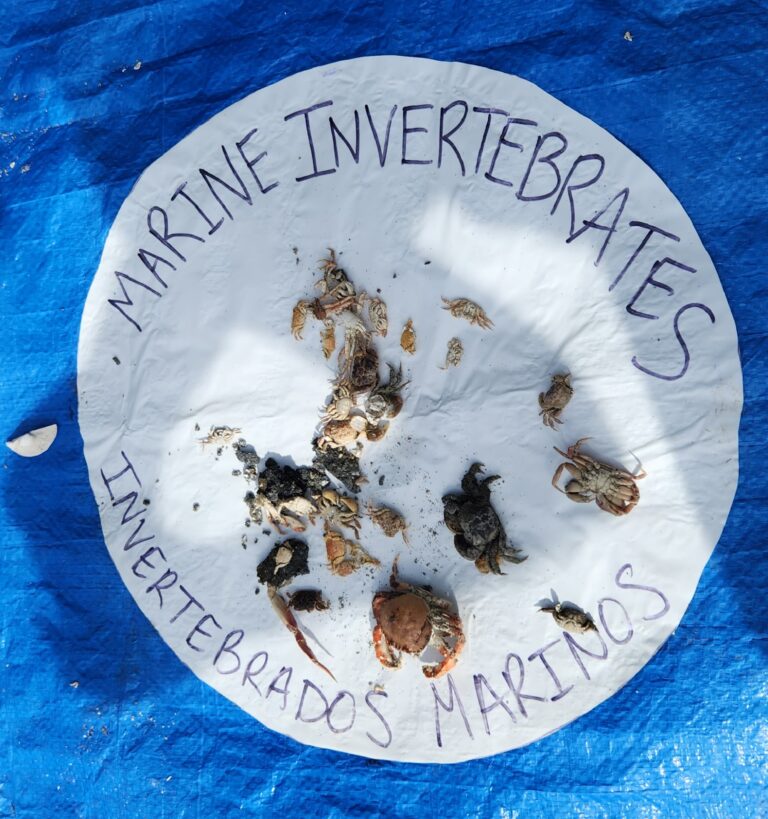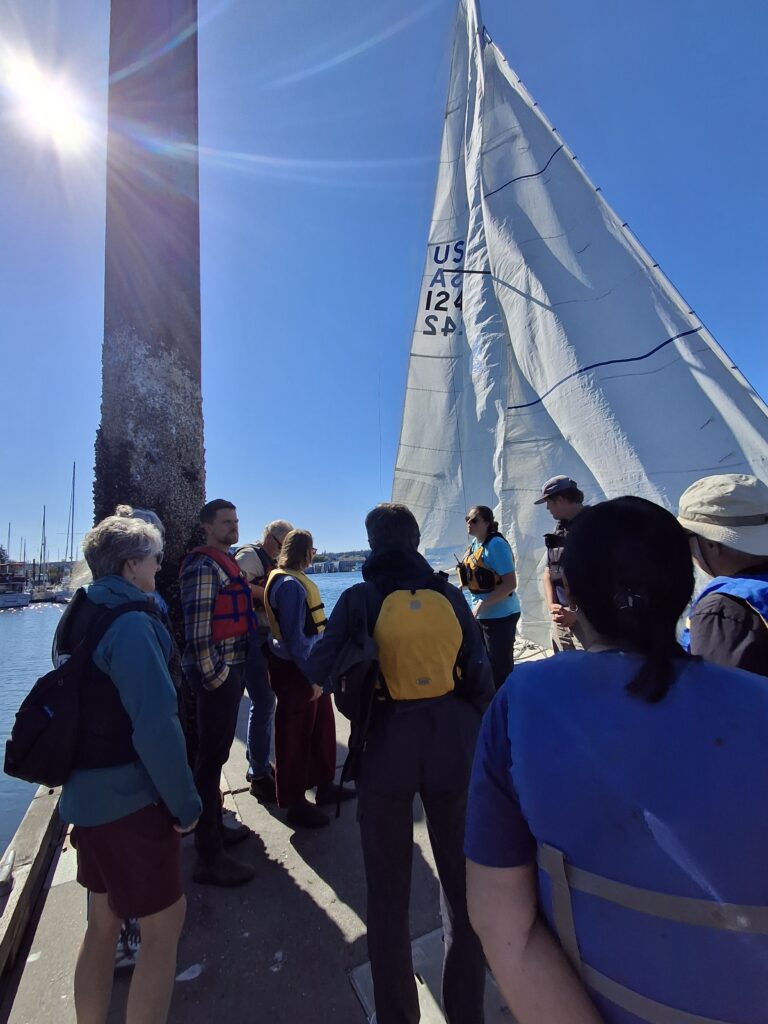Teachers in rural areas rarely have opportunities to see their communities as cutting-edge. When they do, it’s transformational. That’s what happened for at least one rural educator who attended a two-day, in-person Engaging Communities in Forestry Education (ECFE) workshop in May. PEI co-facilitated the workshop in collaboration with Yakama Tribal Forestry.
“I just loved how we saw at least one person who seemed so much prouder of her community when she realized that people were coming to learn from them,” says PEI’s Associate Director, Columbia Basin & Coast Megan Rivard. “That’s a sense that a lot of teachers don’t pick up in these rural communities.”

Rivard has been looking for another opportunity to work with Yakama Tribal Forestry since a Project Learning Tree workshop in 2022. Ryan Sanchey, Yakama Tribal Forestry Forest Operations Manager, was a guest presenter. “Ryan said, ‘I love this. I want to do it again but bigger,’” Rivard recalls. “When I learned we had funding to do an ECFE in central Washington, I knew who to call.” The workshop was funded through Project Learning Tree and ClimeTime, Washington State’s climate science education initiative.
“These teachers were hungry for outdoor opportunities. They love any chance to get out in the field and experience these things firsthand. They appreciated the opportunity to connect with Yakama Tribal Forestry and see what their forestry program is all about.”
— Amber Yeager, PEI’s Central Washington FieldSTEM Coordinator.
Teachers spent the first day in the field at active forestry sites, learning about the tools and techniques of forest management, factors involved in management decisions and how climate change has affected forestry practices. Under the guidance of Sean Chrisman (Lead Forest Development Forester), they tried their hands at a few of those practices. Ryle Smartlowit, Sean Ward, and Teddy Olney demonstrated their diverse knowledge and skills in forest health management – including an incredible tree-climbing for seed harvest demonstration! Teachers were able to talk with and learn from field foresters, project specialists, timber managers, and policy specialists to better understand the diversity of roles and pathways available through forestry.
“These teachers were hungry for outdoor opportunities,” says Amber Yeager, PEI’s Central Washington FieldSTEM Coordinator. “They love any chance to get out in the field and experience these things firsthand. They appreciated the opportunity to connect with Yakama Tribal Forestry and see what their forestry program is all about.”
The following day, participants engaged in a simulation in which they played the role of a forest manager for a 400-acre public forest and explored the complex factors that influence management decisions. They also reviewed PLT guides and spent time with colleagues who teach the same grade band levels to plan how they would integrate activities and lessons with their curriculum.
“They were blown away by all that they had learned the day before,” says Rivard. “They came back on day two excited and ready to dive into ways of bringing it back to their classrooms.”
For Yakama Tribal Forestry staff, the workshop was an opportunity to both share their work and support the development of career pathways for students. “It seemed like they enjoyed highlighting what it is they do,” says Yeager. “They don’t always get that chance. As they told us, this is their third year offering this kind of workshop and they keep getting better at it.”




